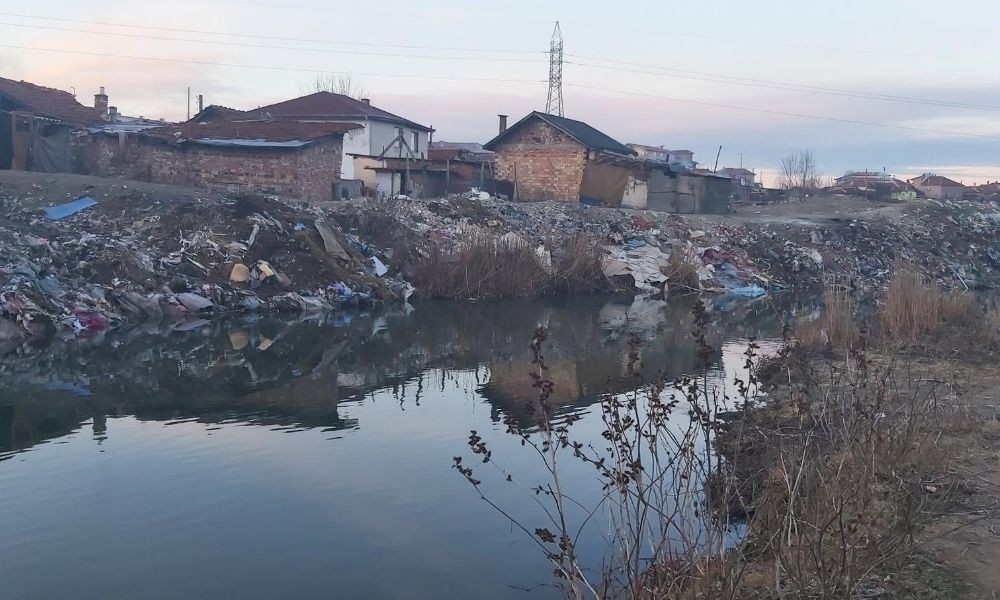The carelessly discarded plastic cup can easily reach the nearby river and wastewater can pollute its waters even further. However, humans can not only destroy. They can create and build things as well. This is proven by the Earth Forever Foundation which, together with three foreign non-governmental organizations will seek environmental solutions for Tundzha River (in South Bulgaria), Prut River (in Romania) and Dnieper River (which flows through Russia, Belarus and Ukraine).
The project “Cleaner Rivers-Cleaner Seas” emerged as an initiative of associations from several Black Sea countries-Bulgaria, Moldova, Ukraine and Romania. The eco-activists decided to undertake actions when they saw how their rivers are clogged with decaying waste which later goes into the sea and how untreated wastewater is illegally discharged into river beds.
Who pollutes the most?
“People, but not those who stand on the river bank, pollute the most when we talk about plastic waste- Diana Iskreva, Executive Director of Earth Forever Foundation says. - Discharged plastic waste is carried by wind, erosion, rain and it naturally ends up in the rivers. As far as faecal pollution is concerned- the citizens, as well as the municipalities, which do not have wastewater treatment plants, are partly to blame. Of course, the factories also pollute, but they are not the subject of our project.”

Maglizh municipality and the nearby villages of Yagoda and Yulievo, located along Tundzha River, are the Bulgarian partners of “Cleaner Rivers-Cleaner Seas” initiative. Pilot projects through which local people are to learn how to turn waste into a resource, will be fulfilled in this Bulgarian municipality. A composter whose function will be to crush and shred branches and collect leaves will be built there. Presses for crushing plastic waste will be installed as well. A pilot plant for wastewater treatment will be also built.
A smartphone application which locates places with increasing quantities of waste will be also developed. The project is to the tune of EUR 487,000. The training of young people will also cost a lot. On one hand, they will learn how to preserve the natural wealth. On the other hand, they are to learn how to submit their complaints about outdoor pollution so that they are considered by the institutions and achieve the desired result.
Unfortunately, the efforts of the non-governmental organizations cannot solve the global problems and Bulgaria continues to be at the bottom of the ranking in terms of implementation of European legislation.
“When Bulgaria joined the EU, the government and the European exerts came to the conclusion that this country needed EUR 2.9 billion to achieve compatibility with the Wastewater Directive- Diana Iskreva reminds in an interview for Radio Bulgaria. – We spent this money, but managed to reach 23% compatibility. On one hand this is due to the fact that a lot of money was spent unreasonably. On the other hand, this is due to the fact that the used technologies were efficient until the mid-20th century. According to our legislation, only one technology called sewerage system exists here, whereas other countries are using many technologies and most of them are related to decentralized wastewater treatment, i.e. water is cleaned at the site of supply. In Bulgaria there are only pilot projects of such technologies, but they are so small that they cannot cover even a single town or village.”

Meeting the requirement of the European legislation through the only technology in our country means two things - spending plenty of money unreasonably to build new sewerage networks and depreciation charges at the expense of the consumer. However, the goal is not to make water too expensive for people after treatment, but to allow consumers to continue using this resource without polluting the environment”, Diana Iskreva concludes.
English version: Kostadin Atanasov
Photos: BGNES and BTA
The Buzludzha Monument will be the set of a Hindi film production. A team of 100 people have arrived in Kazanlak for the filming of "Good Bad Ugly", which stars famous actor Ajith Kumar in the lead role. The film is being shot in..
Bulgaria’s successes at international science Olympiads in 2024 can be seen in an exposition entitled “Fantastic minds”. Inaugurated to mark Awakeners” (Enlighteners”) Day, 1 November on Lovers’ Bridge near the National Palace of Culture in Sofia,..
Leading researchers and lecturers from the St. Kliment Ohridski University in Sofia and the Institute of Astronomy and National Astronomical Observatory of the Bulgarian Academy of Sciences will be paying a visit to the Museum of Natural History in..
Nuredin Nuredinaj comes from the historical-geographical region of Gòra in Northeastern Albania, where 90% of the inhabitants identify themselves as..

+359 2 9336 661
